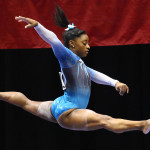What is it like to be a Black varsity student-athlete at Yale? Exhausting.
For any student-athlete, maneuvering through a schedule overflowing with events, practices, classes, and other extracurriculars is no easy feat. A student-athlete must constantly sacrifice their own desires and precious personal time to keep up with the day-to-day demands of being on a collegiate-level sports team. But it’s not just the rigorous scheduling, intense training hours, and late-night cram sessions that Black varsity-athletes must endure. At Yale, the notion that varsity athletes are not here by their own merit, but because of a system that relaxed its standards to bring in Black and brown students to benefit sports teams permeates campus culture. The question, “Were you recruited to come to Yale?” morphs into an insult instead of an accomplishment depending on the color of the recipient.
It is exhausting to validate your merit amongst those who do not believe you deserve to be here.
For most white student-athletes, recruitment to Yale means you were both successful in the classroom and exceptional in sports —a true All American. For varsity student-athletes of color, recruitment carries an unspoken but ever-present negative stigma. Instead of emphasizing the achievements that caught the eye of Yale recruitment coaches, underhanded comments regarding the “ease of entry” for Black students take center-stage, undermining the true effort that Black student-athletes displayed to be recruited in the first place.
Harmful historical stereotypes emphasizing the “superior” physicality of Black bodies pre-dates collegiate sports, but the implications of its inception trickle down to even present-day interactions. The belief that heightened athletic aptitude accompanies a low intellect favors racist rhetoric that seeks to subjugate and dehumanize Black people. As this racist stereotype morphed throughout history, these ideas soon entered collegiate settings where Black college students dominated athletic sports teams. Currently, the notion that there is an inverse correlation between athleticism and intelligence remains unchecked in our campus culture.
The gravity of this stigma is not truly felt by legacy students, non-athletes of color, or white varsity players, even though we’ve benefited from similar advantages in the admissions process and our transcripts, resumes, and recommendations are similar in caliber. Where white varsity players are praised for their recruitment status, Black students are compelled to feel shameful of their own.
For example, when a class maintains a high enrollment of student-athletes of color it is often written off as a gut course. Comments like, “Do you go to Yale for a sport?” imply that a Black student-athlete has not come to Yale to pursue a degree but is there solely to provide entertainment. And most commonly, the idea that student-athletes only had to do well in their respective sport to secure their spot at Yale disregards the historical impact that recruitment has on Black and brown students and the academic achievements that they have to maintain to compete.
Surviving a social and academic culture that only acknowledges the hardships that are brought about in a classroom is a constant uphill battle for athletes of color who face pressing difficulties on the field and within the social sphere. For me, the repercussions of this campus ideal were palpable the moment I set foot on campus, donning the signature varsity athlete backpack. The struggles Black student-athletes face, the prejudice we suffer, and the potential risks we accept make every day at this institution more stressful and daunting than other students’ standard experiences.
Aliyah Cunningham ’22


